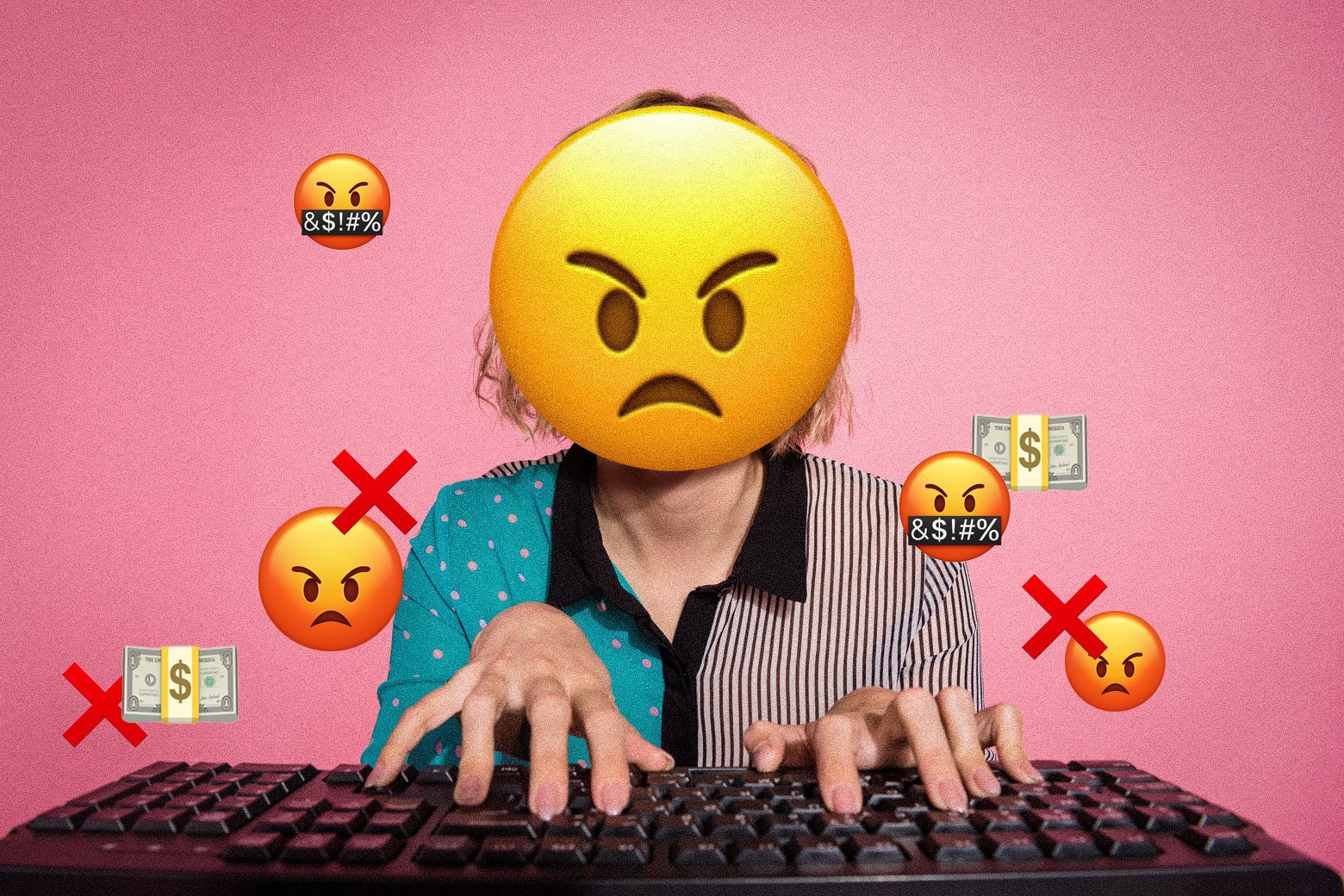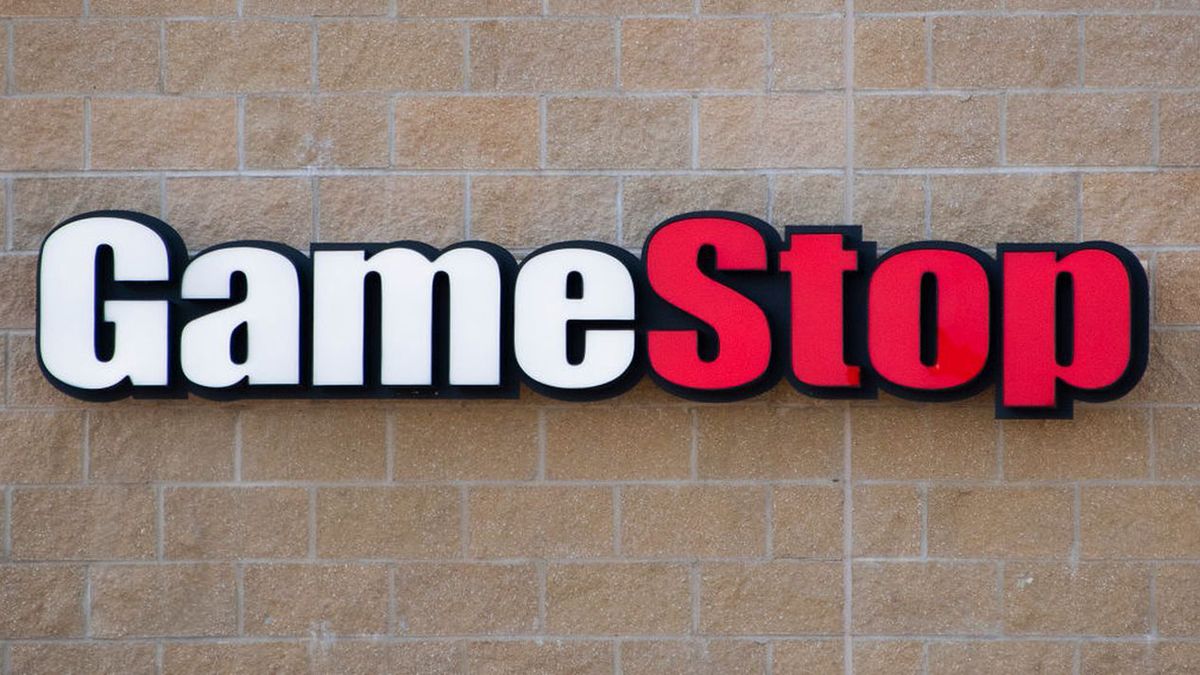Sign up for the Slatest to get the most insightful analysis, criticism, and advice out there, delivered to your inbox daily.
“We’re here to talk to you about some changes that are happening as a result of Project Energize,” Donna, our divisional vice president, said. It was 10 a.m., and I had just logged into Zoom for a scheduled update meeting with my boss, but as the call connected, I saw the faces of not only my manager but also our vice president and human resources representative. I knew what was coming. I was getting laid off.
I had begun working at the company decades ago as an editor. During that time, the staff thinned considerably. Every couple of years there was some sort of shedding of staff, either through layoffs, reorgs, or voluntary buyouts. Most of the time, it made sense. The steady growth of the internet, combined with two decades of economic downturns, had turned the once thriving venture into a slowly sinking ship. And if a company isn’t doing well financially, they have to make changes.
This time around, we were told the company was now profitable—successful, even—but we needed to make even more money. Hence Project Energize, a yearlong period of layoffs and offshoring. When Donna began her well-rehearsed speech, I thought, “Oh, now it’s my turn.”
For years, I’d listened to friends and co-workers describe this exact situation—the mysterious meeting invite, the “thank you for your service” speech, the HR rep explaining the severance package. It was a simple, familiar script. I’d known, despite my good luck thus far, that even though I seemed to be well-liked by my manager and co-workers, one day I would be hearing it, too.
I scribbled notes in my little yellow notebook as the HR rep rifled off words like “unemployment,” “last day,” and “health insurance.”
“I want to thank you once again for your hard work and dedication throughout the years,” she said as my breathing grew ragged. Then the tears just spilled out.
“Thanks,” I said, quickly shutting down the Zoom call. I sat at my dining-room table, in silence, staring into space, surprised by my own sadness. As the day progressed, I discovered that there had been a lot of Zoom meetings that morning. The layoffs had been massive, and my little team of six had been reduced by half. As information spread, I began corresponding with other angry and disappointed employees who were contacting me in response to the news. The fact that I wasn’t alone was comforting. The sorrow in the texts and emails from my co-workers was palpable. We were in it together.
But that wasn’t the end. I would have to work there for another month, doing my usual job while my manager trained my replacement in India. After all, these weren’t the sort of layoffs where jobs were cut and reabsorbed by other staff. No, these were the sort of layoffs where your company builds an office overseas for the sole purpose of sending work offshore. This change was called an “efficiency” in the email we received that afternoon, as if sending a job to another country would somehow make things run more smoothly.
The following Friday, we had a company-wide meeting with the CEO, who I’ll call “Daniel.” He implied that we should be excited about the amount of money we were saving, and that we had far surpassed our original goal. His voice was smooth and enthusiastic: “Think about all the customers we’ll be able to help!”
Sometimes, Daniel reminded me of a love bomber, only corporate. In meetings, he would go on and on about our company credo, our company values, how he cared about the “employee experience.”
“As it states in our credo,” Daniel said, invoking one of his favorite words. “We are accountable to and for each other.”
His other favorite word was “family,” as in “this company is a family,” and he continued to use it in the meeting about layoffs. I don’t know how Daniel’s family works, but I have never kicked out one of my siblings so I could exchange them for a cheaper model.
Eventually I realized it was time to move on, but I didn’t know how. One moment, I’d feel OK about the situation. The next, I’d be angry, then I’d weep, then I’d be filled with disdain. The emotional pickleball felt shockingly similar to a breakup. Workplaces expect a certain level of commitment from you, and while I never bought into the idea that the executive team cared about my well-being, they talked as though they did. They seemed so invested in me. I thought we had a future.
I tried everything to keep Daniel’s words from stomping across my head and taunting my heart. I did crunches, I took sleeping pills, I did therapy, I ate ice cream first thing in the morning. Then, one night, on a whim, I found myself on Glassdoor, a website for company reviews, both positive and negative.
Years ago, Daniel had started asking employees to leave reviews on the site. Eventually, we became one of Glassdoor’s “Best Places to Work,” and Daniel became one of their “Top CEOs.” It’s unclear how this happened when most people I worked with were worried about losing their jobs and complained about their low salaries. I was sure our high ranking on the site had something to do with Daniel’s encouragement to post.
When I first started scanning the reviews, I hadn’t decided yet if I would submit one. All I wanted was a distraction from thinking about my jobless future. What I noticed about the site was that while there were some negative comments—money-driven mentality, lack of humanity, constant layoffs—there were also glowing recent four- and five-star reviews posted during the layoffs I was a part of. Who were these sycophants? Didn’t they know people were losing their jobs? I thought we were in this together!
The company’s behavior had been reprehensible. The world needed to know the truth. I felt a sudden surge of confidence and superiority, convinced that leaving a review was the right thing to do. I would expose the immoral capitalist machine. Resist! Rebel! Revolt!
I was certain that by completing this act of high-minded resistance, all the frustration and disappointment building in my brain would dissipate, and I would leave with my head held high. So, as I had done so often with ex-boyfriends, I wielded my pen and composed a strongly worded rebuke. I admonished the company for eagerly accepting money from a private equity firm with a ruthless reputation. I told Daniel that no one was buying his moral grandstanding; that he was a hypocrite for talking about the company’s values while simultaneously offshoring workers. Finally, I mocked the company’s desperate attempt to seem like a “great” workplace and warned future employees that their talents would be considered disposable. They would be wooed and then they would be dumped. Then, instead of emailing it, as I had done with my exes, I hit post.
I knew Daniel read these reviews. Sometimes, he replied.
All Glassdoor posts are anonymous, but there was an irrational part of me that believed he would see my words, know it was me, and understand he had made a mistake. He would tell his colleagues, “Hey, this woman is smart. A real straight shooter! So confident! So self-assured!” My imagination ran wild. Instead of firing me, he would apologize and beg me to stay. He would ask me questions about how to make the company better, expressing curiosity about my job for the first time. I became giddy as I imagined a parallel life where I told him off. And he listened.
But he said nothing.
My stomach sank. I should never have posted it. I should have symbolically “blocked his number” and let it go. But I couldn’t. The company had hurt me. I wanted to hurt it back. I felt helpless, so I tried to control the narrative. I knew they had the upper hand, so I tried to outfox them. I cringed at my self-righteous indignation.
And then, two months later, when I was no longer expecting a reply, Daniel responded to my Glassdoor post. When the email notification showed up in my inbox, I felt a surge of excitement, but that feeling quickly changed to disappointment as I read his reply.
Most of what Daniel wrote was filled with doublespeak and cold corporate jargon. But there was one part, near the end, that caused all my old grievances to rise to the surface once again.
“We are a global for-profit company and as such, we want to compete and innovate for the benefit of our customers,” he wrote. “That innovation includes regularly monitoring how we can run our operations in the most efficient way. This is not contrary but in fact completely aligned with our credo and ethos. If we decide to relocate operations to our colleagues in India, this is always done with an eye towards improving quality and lowering cost.”
Lowering cost is obvious, yes, but how does offshoring work to another country improve quality, Daniel? What are you saying about the skills of your U.S. employees? What are you saying about me?
Needless to say, it didn’t make me feel better. But that is always the way. Whether it’s an ex-lover or a former boss, the response is never the one we want. When you confront a person who has rejected you, it usually only leads to more questions, more anger, more hurt. I wanted to feel special, different from all the other laid-off workers who had come before me. Daniel wasn’t going to give me that. He could not mend my heart.
After reading his response, I noticed that my post had garnered 27 likes in the past two months, which was relatively high for Glassdoor. In the end, this anonymous “liking” was the thing that made me feel validated. It was knowing there were other employees who felt the same way.
On my last day, the company sent me the severance agreement to sign. Opening the email, I had a nauseated feeling, but I was done with the drama. I was ready to get on with my life. I read the document and signed my name. The divorce was finalized. Just like that, my kitchen table transformed from the office it had become since COVID back into a regular old piece of furniture.
I picked up the little yellow notebook I used for work, given to me as a gift by one of my former co-workers who had been laid off years earlier. Before throwing it away, I flipped through it and realized that almost the entire thing was covered in my penciled script. At the very back, I discovered there was only one fresh, blank page left.
I tore it out and put it on my refrigerator. My future, waiting to be filled in.




:max_bytes(150000):strip_icc():focal(611x0:613x2)/sami-sheen-ecd75cc537d64328a213df028c53941d.jpg)










